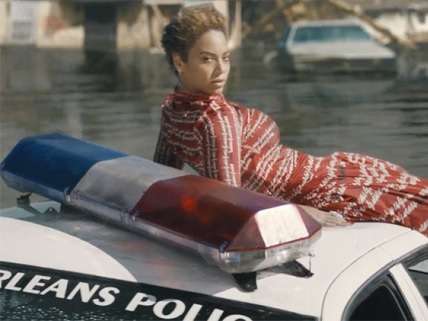Sheriff Wonders Whether Beyonce's Super Bowl Show Inspired Violence Against Police
Here we go again.

Someone fired several shots at the home of a sheriff in Tennessee Monday night. Rutherford County Sheriff Robert Arnold held a press conference Tuesday morning, and openly wondered whether Beyonce's Super Bowl halftime show might have had something to do with it.
"We all know, as soon as you put your uniform on, you're a target," Arnold said, according to The Daily News Journal. "You make people mad when you're just doing your job."
According to The Daily News Journal, Arnold said at the press conference he wondered whether the shots were inspired by the Super Bowl half-time show. "You know, Beyonce's video."
By yesterday afternoon, the sheriff was seeking to clarify his comments, releasing a statement that referred to the string of shootings of police officers in the week and a half since the Super Bowl. "My comments are an observation of the violence that has occurred but in no way is meant to offend anyone."
Beyonce's Super Bowl halftime show featured a performance of the song "Formation" and included tributes to the Black Panthers, an organization founded in the Bay Area (where the Super Bowl was held this year) 50 years ago, Malcolm X, and Black Lives Matter.
A similar string of shootings last summer led to renewed hysteria about a "war on cops." One of those shootings ended up being a suicide. A large-scale manhunt was launched after the death of Joseph Gliniewicz, who committed suicide in a way as to make it appear to be a killing. 2015 ended up being one of the safest years on records for cops. There's not enough of a sample yet this year to assume anything different. The highest number of police killings in recent years came in 2007—there was no police reform movement to blame for the uptick back then.
As Jack Hunter wrote at Rare, much of the white dread over Beyonce's Super Bowl performance (and later Lamar Kendrick's Grammy performance) comes from a lack of understanding that black people might have a distinct American experience.
"These are African American artists who share the same history we all do, but also their own distinct history as black Americans—including their own heroes, tragedies and complex experience that won't always mirror everyone else's," Hunter wrote. "There's nothing wrong with that."
There is something wrong with blaming violent acts on speech, whether it comes from the left or the right, from civilian politicians or police officials.

Show Comments (44)